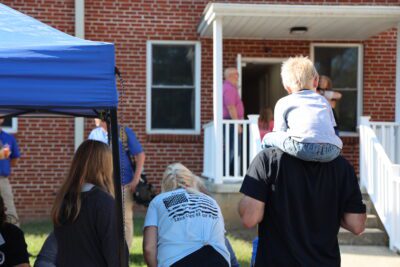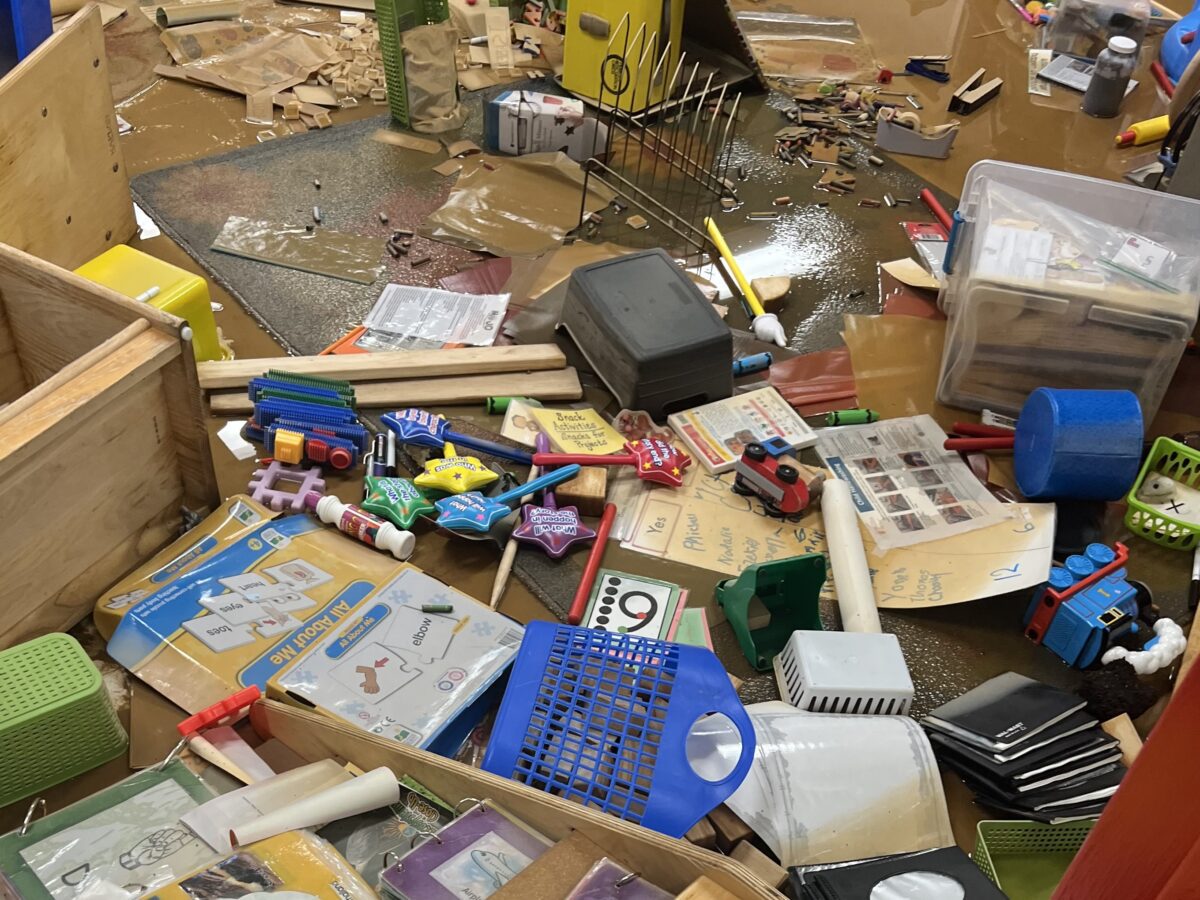
Editor’s Note: This article was updated to correct which organizations requested funding from the legislature.
Despite requests from early childhood leaders, the legislature’s Hurricane Helene relief package announced Wednesday did not include funding for child care programs in the western region of the state devastated by the storm.
“Child care is an essential part of keeping western North Carolina moving,” said Charles Hodges, director of the NC Licensed Child Care Association. “We would urge the state to take another look at that.”
The association requested funding and regulatory relief in a letter to the legislature Monday. So did the Department of Health and Human Services (DHHS) on Oct. 7.
![]() Sign up for Early Bird, our newsletter on all things early childhood.
Sign up for Early Bird, our newsletter on all things early childhood.
The package did give DHHS the authority to waive or modify child care licensing requirements in affected counties. DHHS has not specified what all of those flexibilities will look like.
“The child care industry is already fragile and Hurricane Helene has had a devastating impact on many centers,” a DHHS spokesperson said in an emailed statement. “We are currently assessing the needs and will work with the General Assembly on what is needed to recover. Funding for child care is something that has repeatedly been included in the Governor’s budget.”
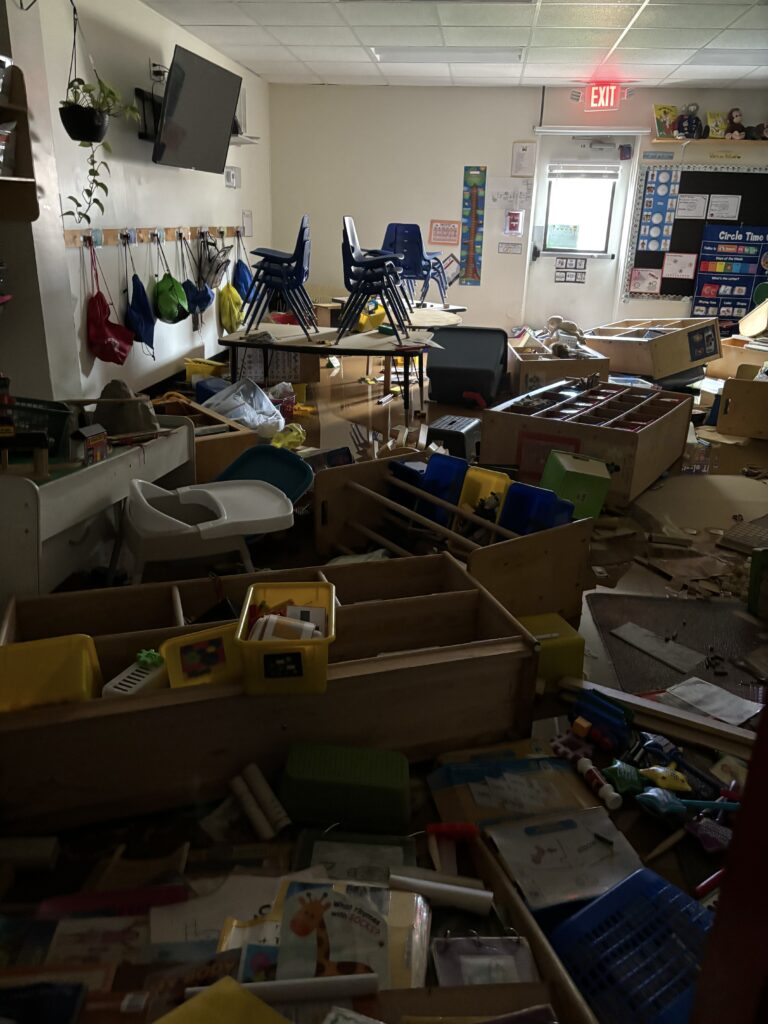
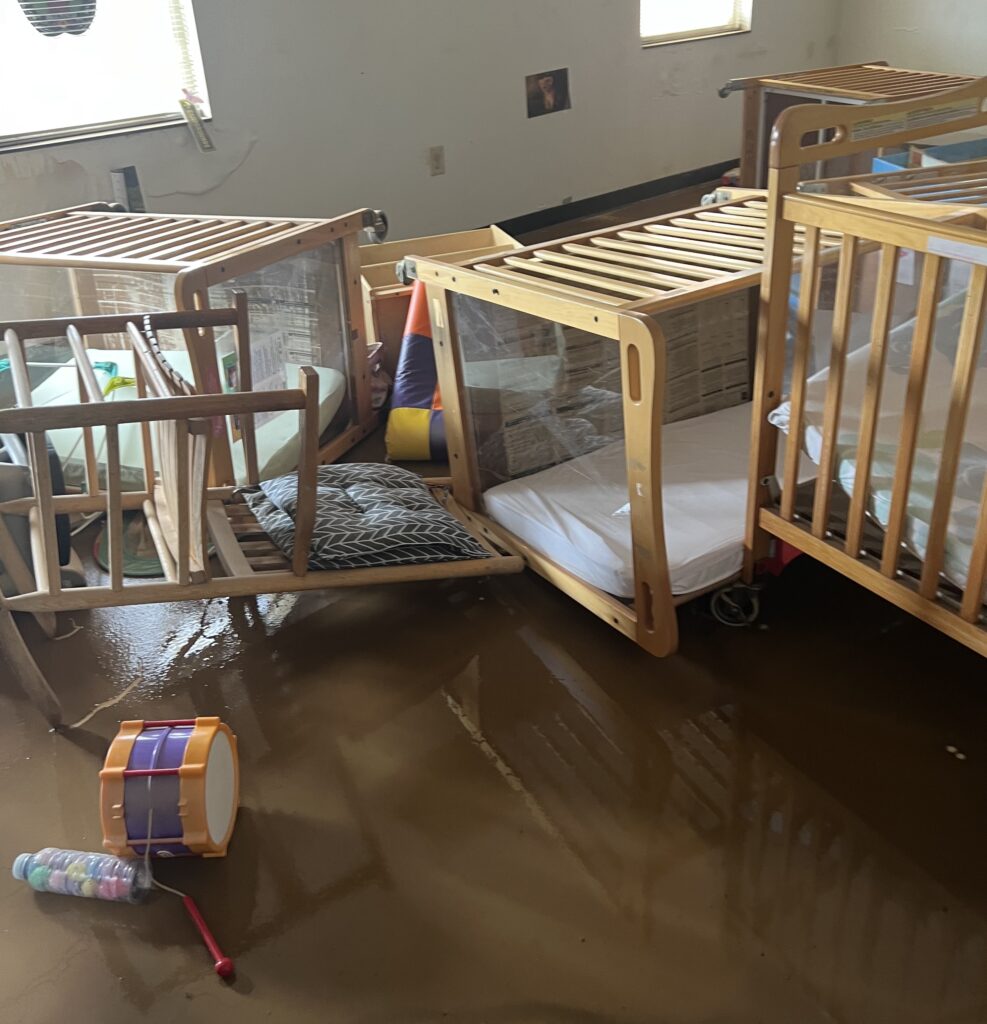
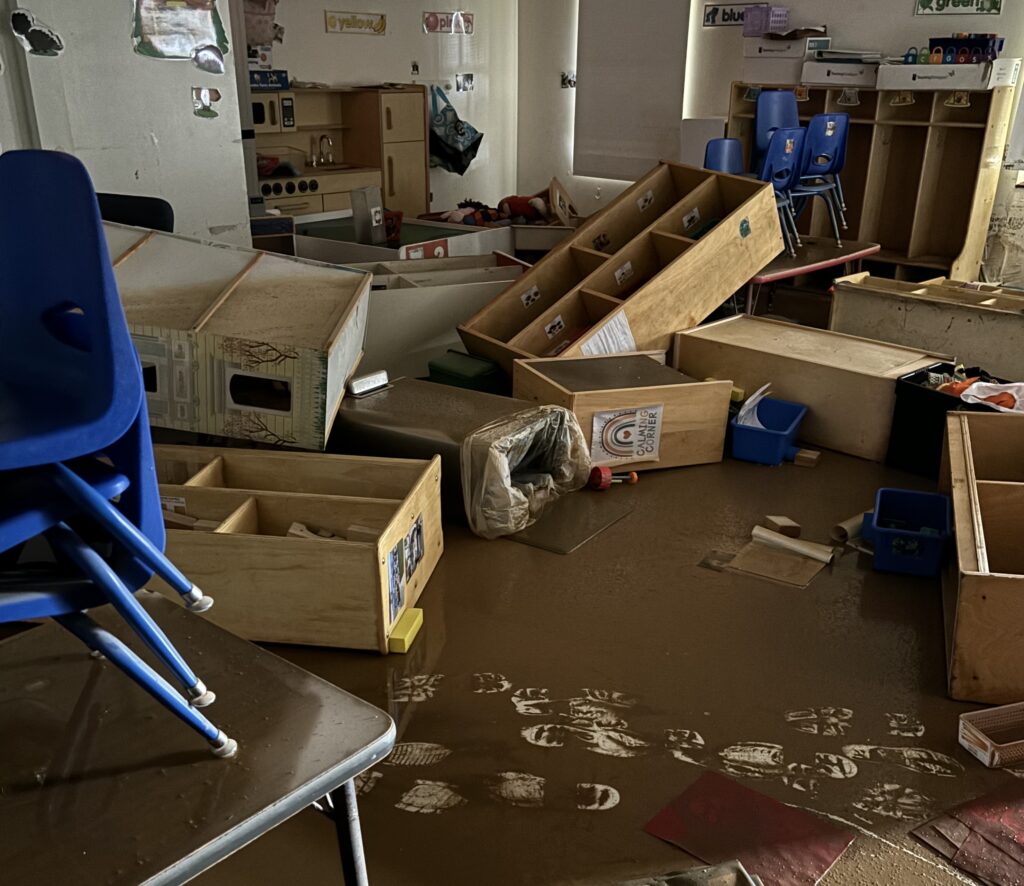
Senate President Pro Tempore Phil Berger, R-Rockingham, said the legislature will provide more relief past this bill.
“The General Assembly is fully activated in its efforts to provide relief to western North Carolina,” Berger said in a press release. “This package is just the first round, and more funding will be on the way as we categorize and evaluate the extent of the damage. In the coming months, we will do everything we can to rebuild the region and provide relief to those who so desperately need it.”
Needs on the ground
Funding is needed for capital costs, facility repairs, equipment and materials, and to keep paying teachers, according to child care directors and Smart Start employees who spoke with EdNC.
Fifty-five licensed programs were confirmed to have damage that would prevent them from opening as of Oct. 9, according to the state Division of Child Development and Early Education (DCDEE). Forty-two more programs were still unreachable, 138 were operational but closed, and 577 were open in the 25 counties originally included in the federal disaster declaration. Swain and Mecklenburg counties have since been added to that list.
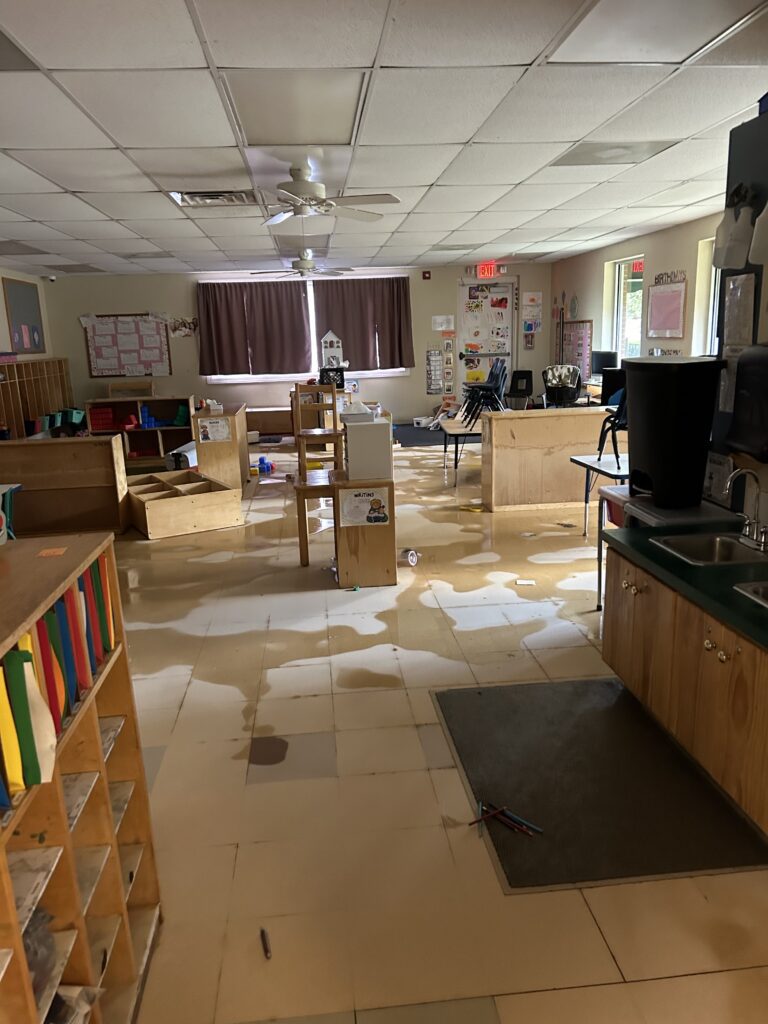
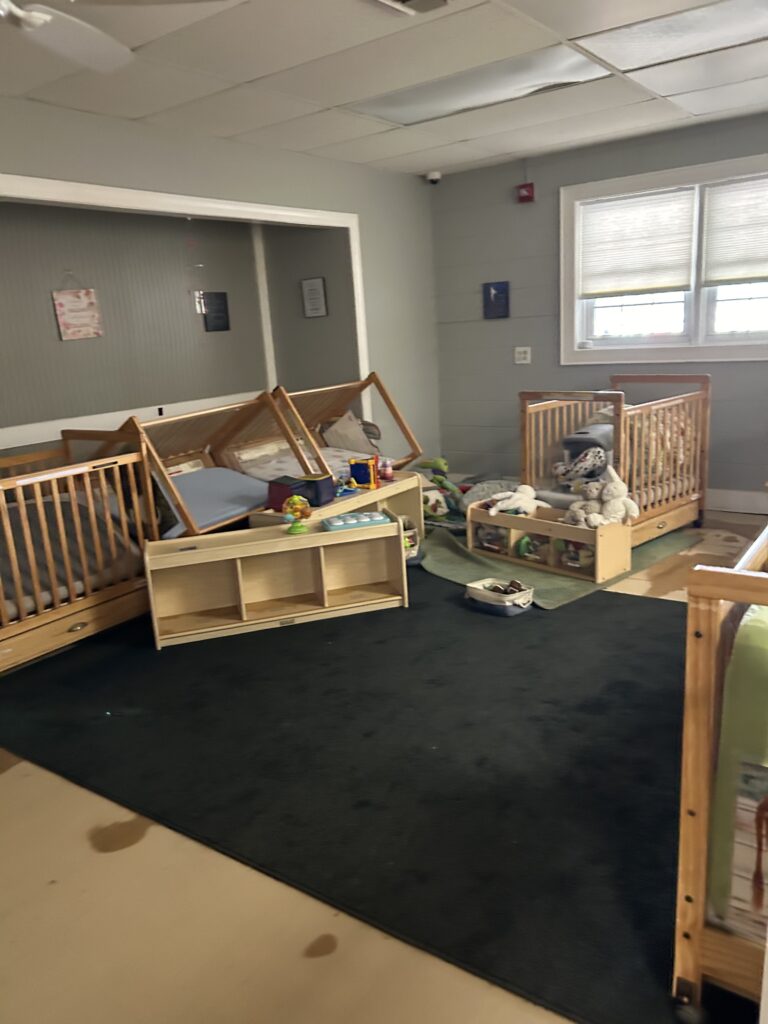

Amy Barry, executive director of the Buncombe Partnership for Children, said she is still trying to get in contact with programs and is concerned about children having access to food and basic necessities. There were 25 programs in Buncombe County on Tuesday that had damage preventing them from opening, and 28 that were unreachable, according to numbers from DCDEE.
Beyond capital needs for damaged facilities, Barry said, financial support is needed to pay teachers while facilities are closed. There are 46 facilities that were operational but not open in Buncombe on Tuesday.
“We had not even rebounded from COVID with respect to the early educator workforce,” Barry said. “If we want to have any semblance of the system of child care available, we have to preserve the existing workforce, and that means that financial support to continue to pay folks is a big need.”
Related reads
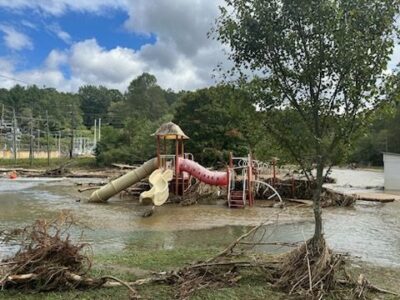

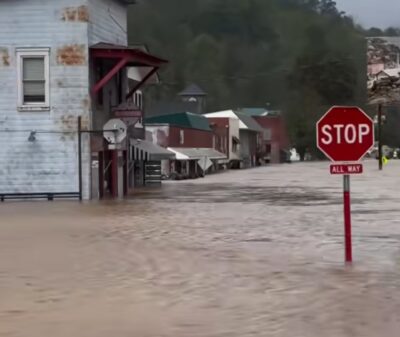
Two programs were damaged beyond repair by floodwater in Burke County: Creative Beginnings Day Care in Morganton, a private child care center, and Quaker Meadows Generation, a Head Start program operated by Blue Ridge Community Action. Kathy Smith, executive director of Burke County Smart Start, said those programs served about 250 children. Both operated NC Pre-K classrooms.
“They’re having to go down to the studs,” Smith said of the programs’ buildings. Other programs still need internet access to communicate with families, she said.
Jennifer Simpson, executive director of Blue Ridge Partnership for Children, said no facilities in Yancey, Mitchell, and Avery counties were open as of Tuesday. Programs’ needs range from debris removal to flooding repair.
Simpson said equipment and supplies will be needed eventually, though providers are not yet ready for them.
“They’ve got to get everything cleaned out and those kinds of pieces before they can accept any delivery,” she said.
Flexibility is needed in regulations on enrollment capacity, teacher-to-child ratios, and building requirements. Extensions are needed to allow programs to serve in temporary settings, Smith said.
Smith said she is partnering with the local school system to reopen child care classrooms in public school buildings. Especially when it comes to infants and toddlers, requirements should be waived while keeping environments safe, she said.
‘It’s not stabilized, yet it’s very necessary’
Child care support is needed to keep children safe and to allow families to recover and eventually return to work, said Halee Hartley, owner and director of Kid Cove, a private child care program with three sites in Watauga County.
“We’re wanting to keep child care open, but right now it is not feasible,” Hartley said. “It’s not stabilized, yet it’s very necessary.”
Hartley is keeping her program’s doors open while losing between 30% and 40% of October’s revenue, she said. She was able to reopen partly due to the Boone Area Chamber of Commerce’s allocation to cover some child care programs’ tuition payments for the month of October.
Two of her three facilities have temporary damage, Hartley said. The program is serving 110 children under 5 years old (about 85% of her regular enrollment) and between 60 and 70 school-age children for free while schools are closed.
“Families are using child care right now just to clean out their flooded houses,” Hartley said.
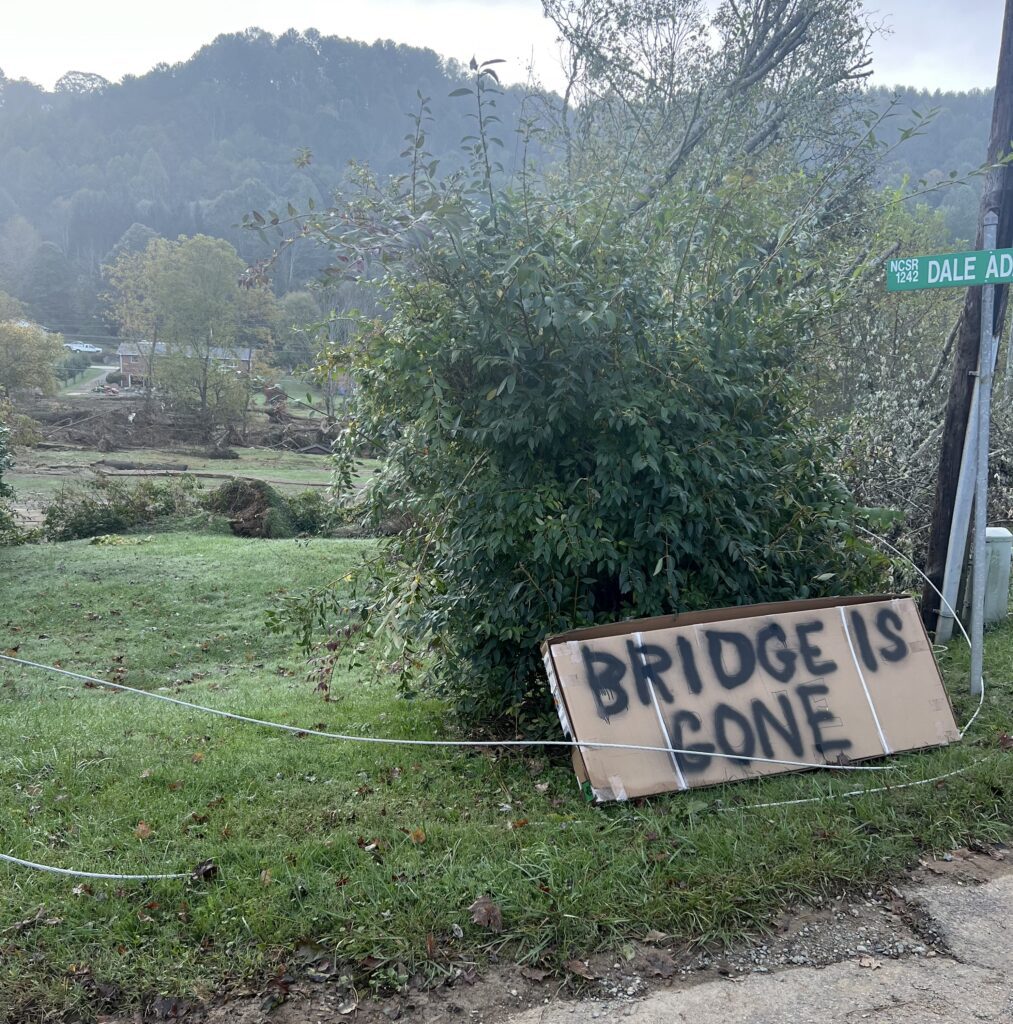
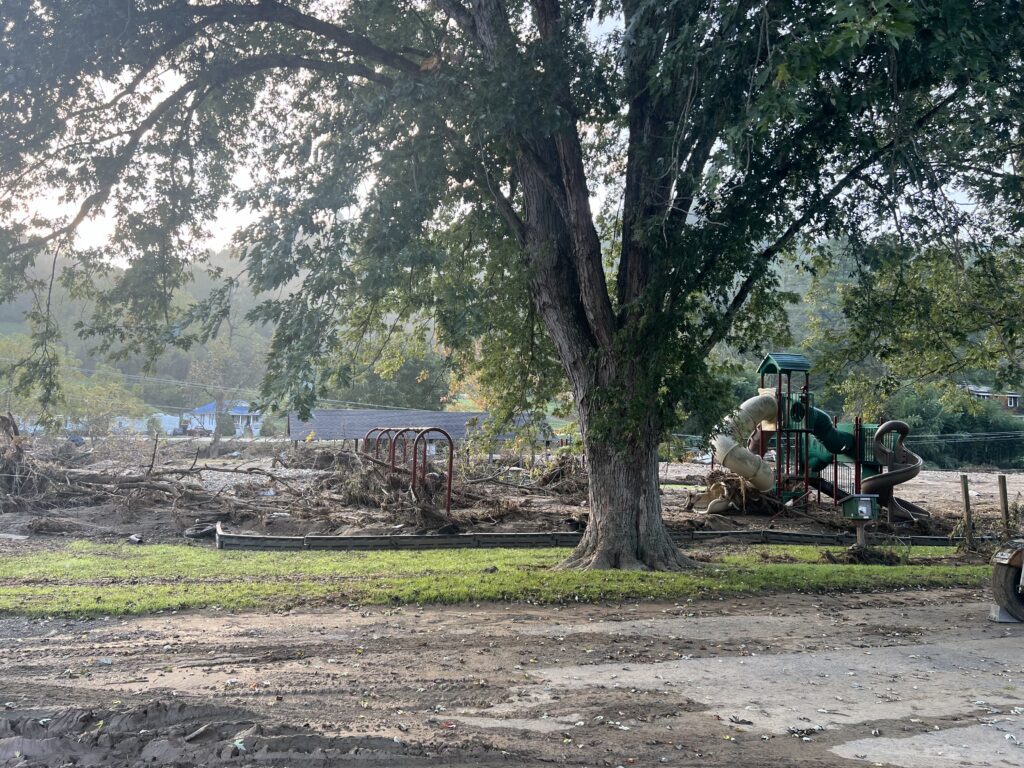
Two of the families her program serves lost their homes, Hartley said. Many more have experienced traumatic events since the storm hit the region.
“We are striving to create stable environments for these children and for these families, and also create some type of normal for the children,” she said.
Hartley said she knows October will be over quickly, and the chamber’s funds will run out. Beyond the current tragedy, she said programs were barely surviving with reduced levels of funding from the state after federal relief funding ran out this summer.
“We were already struggling before, and this — it’s very likely to make or break a lot of facilities now, if they even are open.”
Recommended reading

